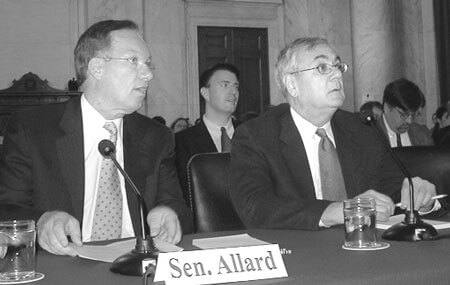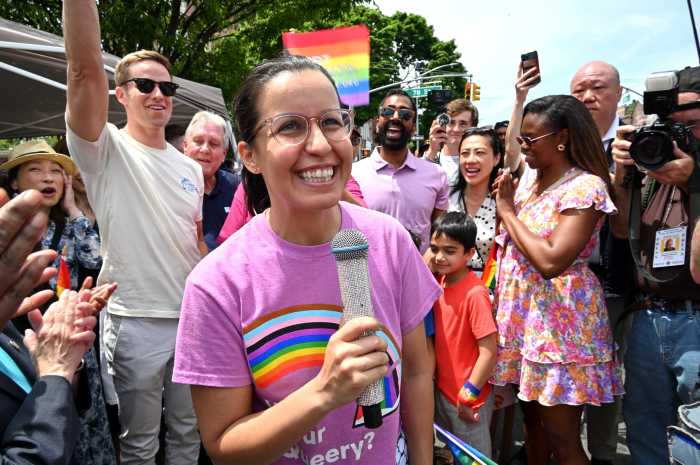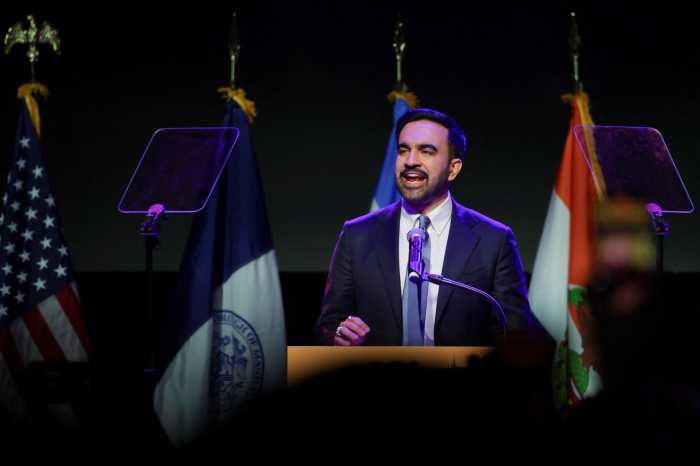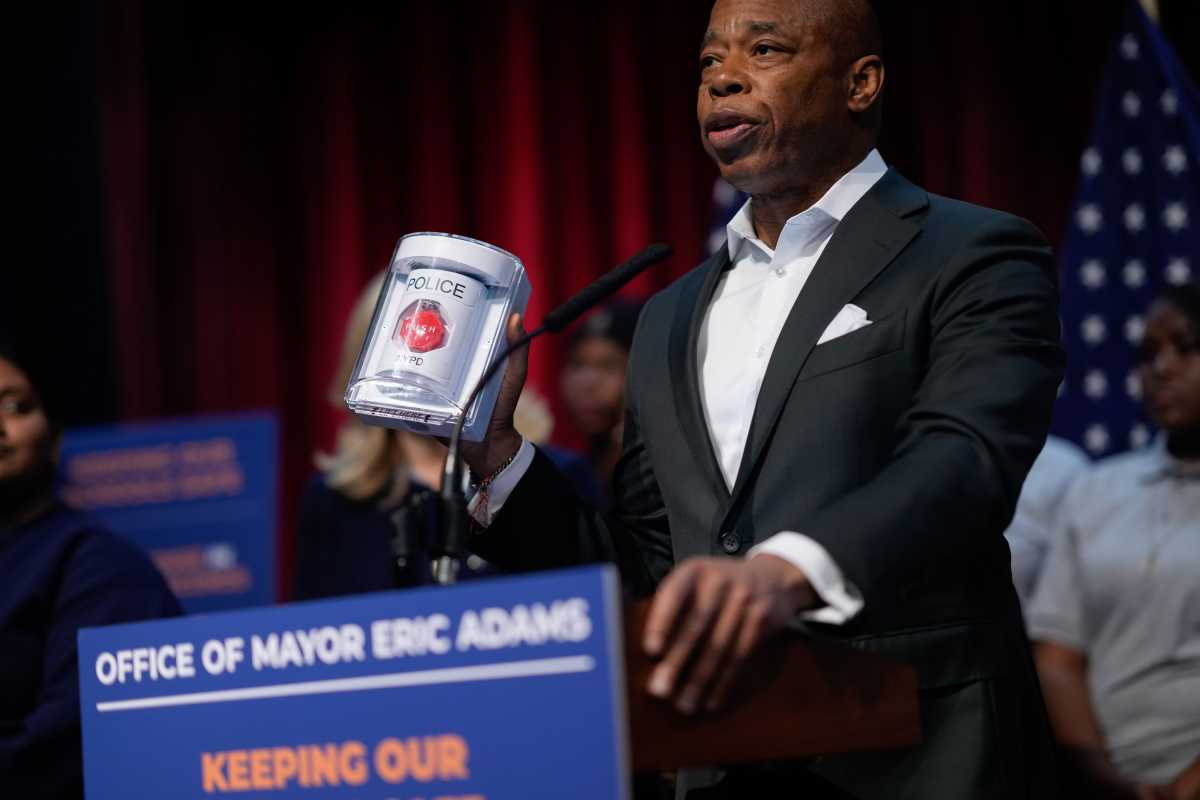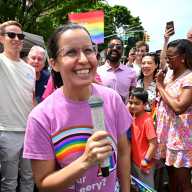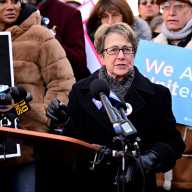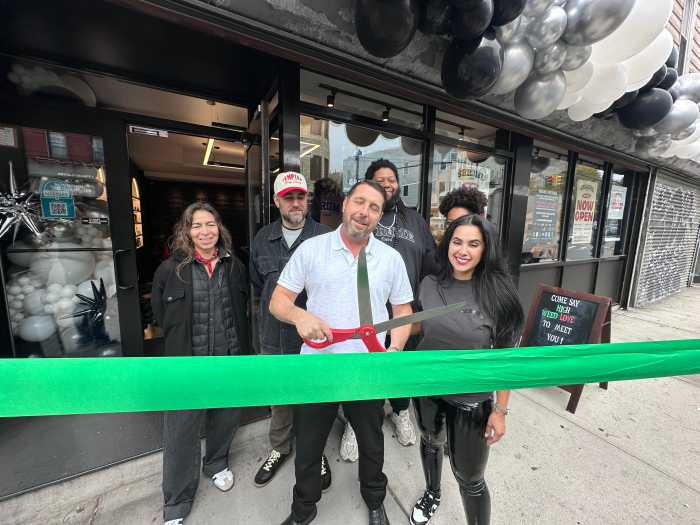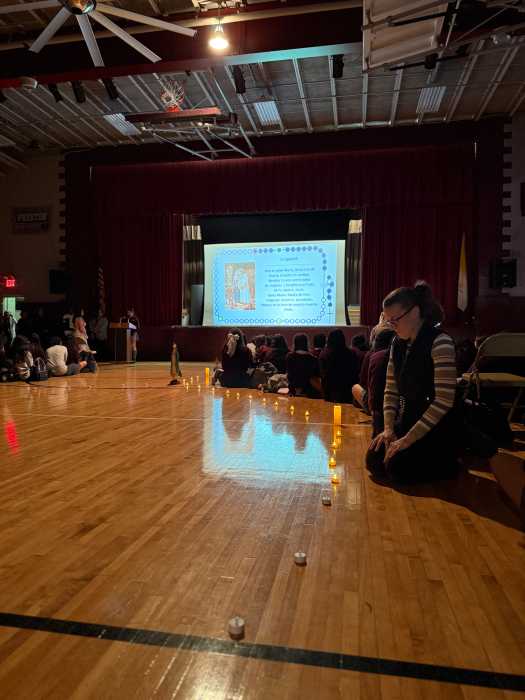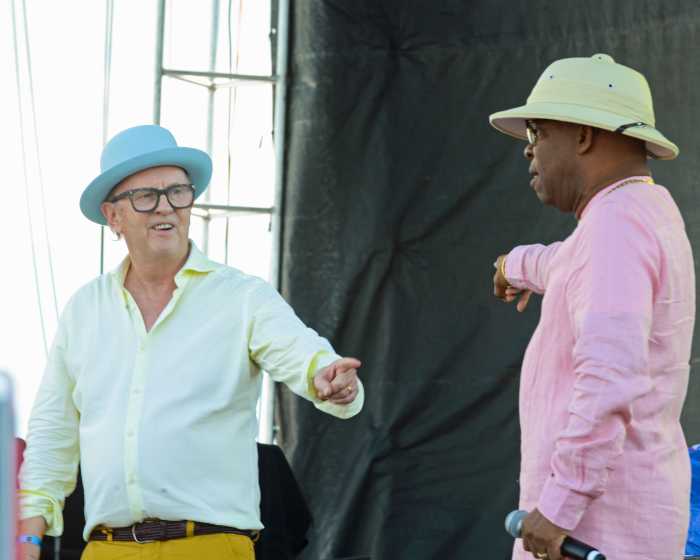Congressmen Frank and Lewis question necessity, efficacy of changing Constitution
A day after two key Republicans announced they had rephrased a proposed constitutional amendment seeking to ban same-sex marriage, the Senate Judiciary Committee held another hearing in which the amendment was debated.
Sen. John Cornyn (R-Texas) convened the complete committee in the stead of its chairman, Sen. Orrin Hatch (R-Utah), who was recuperating from an illness. Cornyn, a former Texas attorney general and supreme court justice, who has taken a lead role in the amendment debate, has already conducted two hearings in his capacity as chairman of a constitutional subcommittee.
Following Pres. George Bush’s formal endorsement of an amendment to prohibit same-sex marriage, Cornyn’s last hearing became the focus of national attention with committee Democrats Russell Feingold of Wisconsin and Edward Kennedy of Massachusetts denouncing amendment efforts as election year maneuvering.
In the announcement by Rep. Marilyn Musgrave and Sen. Wayne Allard, two Colorado Republicans and the amendment’s lead sponsors, both lawmakers said that the change in words was merely a technical shift that does not threaten the original proposal’s intent: to codify the definition of marriage as the union of a man and a woman and prevent “activist judges” from ruling that states must create civil union laws.
Rather, said Musgrave and Allard, legislators must be the final arbiters of whether or not to enact civil unions.
Only Vermont has established civil unions for same-sex couples. Massachusetts is considering whether or not to do so, as state lawmakers continue to wrangle over a constitutional amendment following the state’s high court ruling to legalize same-sex marriage.
It is those justices in Vermont and Massachusetts who have ruled in favor of legal recognition of same-sex couples whom marriage amendment proponents regularly refer to as “activist.”
Musgrave authored the original two-sentence text, named the Federal Marriage Amendment that is the main proposal under congressional review. There are other measures circulating on Capitol Hill, but Allard’s revision of the Musgrave measure leaves intact the first sentence and changed the second sentence to apparently preclude a court from refusing to enforce a civil unions law.
The Allard text now says: “Marriage in the United States shall consist only of the union of a man and a woman. Neither this Constitution, nor the constitution of any State shall be construed to require that marriage or the legal incidents thereof be conferred upon any union other than the union of a man and a woman.”
At least one Democratic senator on the judiciary committee, Dianne Feinstein of California, said the reworded proposal was still too ambiguous and did not clarify whether or not states who implement civil unions would have to undo those laws following passage of a federal amendment.
The Constitution mandates a seven-year limit for amendments to pass muster by two-thirds of Congress of thee-fourths of the states’ legislatures. Including passage of the Bill of Rights, the Constitution has only been amended 26 times.
At Tuesday’s hearing, Rep. Barney Frank (D-Mass.) who is gay, testified, as did Rep. John Lewis, a Georgia Democrat and veteran civil rights leader. Allard and Musgrave also testified, along with several legal scholars.
Frank made a personal appeal to his colleagues not to amend the Constitution, stating that the desire of gay and lesbian people to marry did not pose a threat to society.
In a follow up telephone interview, Frank, who came out publicly in 1987 and has served in the House for 24 years, acknowledged that he was uncomfortable having to lobby against the amendment in way that called upon his sexual orientation. “I hate having to do this sort of thing,” Frank said, adding “legislating is a constant humbling—a very personal issue.” Frank said his appeal to his colleagues was based on the pragmatism that drives politics. “These people know me. I’m their colleague. We work together, we go to the gym together. . .I want them to understand how deeply this affects our community.”
In her testimony, Musgrave reiterated her concern that same-sex marriages threatened to unravel society, in particular the needs of children to be raised by a mother and father.
Musgrave also refuted charges by amendment opponents that she and others were seeking to write discrimination into the Constitution. Musgrave explained that her intent was to merely clarify the definition of “traditional marriage.”
Lewis testified that the struggle for same-sex couples to achieve marriage equality fit into the nation’s larger civil rights movement, mentioning that the hearing came on the eve of the fiftieth anniversary of the Supreme Court decision in Brown v. Board of Education to end racial segregation in the nation’s schools. As for allowing gays and lesbians another legal alternative short of full marriage rights, Lewis said, in his closing remarks, “Separate is not equal. The right to liberty and happiness belong to each of us on the same terms, without regard to either skin color or sexual orientation.”
At another point in his testimony, Lewis said states were best suited to address the marriage issue, not federal officials though a constitutional amendment process. Lewis acknowledged the inherent perils of allowing states the prerogative to decide a matter of national importance. Lewis recalled being knocked unconscious by Alabama state troopers in 1965 when he participated in a march demanding access to the ballot for African Americans.
In his follow up interview, Frank said that the Allard amendment, as the reworded measure is known, “is in political trouble,” since it apparently leaves room for civil unions to be rendered legal either by the Supreme Court or by states seeking a default status for marriage for gays and lesbians. “The measure’s sponsors are in an untenable position, because the right wants to prohibit even civil unions,” said Frank.

